Did you know that over 80% of transactions in Bolivia are still conducted in cash? This makes understanding the local currency and payment methods essential for a smooth trip. The official currency is the Bolivian Boliviano (BOB), and it’s the only widely accepted form of money in most places.
When planning your trip, it’s important to know that while US dollars are accepted in some areas, smaller businesses and remote locations often require bolivianos. Carrying cash is highly recommended, especially in rural areas where card payments might not be an option.
For convenience, consider using a travel card like Wise to avoid high fees. Checking the mid-market exchange rate online can also help you save money during transactions. With the right information, you can navigate Bolivia’s financial landscape with ease.
Getting Started with Currency and Payment Essentials in Bolivia
A little preparation goes a long way when handling money abroad. Understanding the local payment methods and planning your financial setup can save you time and ensure a smooth trip. Whether you’re using a card or carrying cash, having a strategy in place will make your journey more enjoyable.
Why You Need to Plan Ahead
Planning your financial arrangements before departure helps avoid last-minute stress. Exchanging your currency ahead of time can secure better rates, especially if you’re converting AUD to BOB. This ensures you have local money ready for immediate use upon arrival.
Carrying cash is essential for smaller businesses and rural areas where card payments might not be accepted. However, using a travel card like Wise can help you avoid high fees and manage your funds more efficiently.
Overview of Payment Options for Your Trip
When it comes to payment methods, both cash and card have their pros and cons. Cash is widely accepted and often required for smaller purchases, while cards are convenient for larger transactions in shops and hotels.
Be mindful of exchange rates offered by local vendors or at the airport, as they may differ from the mid-market rate. To avoid extra fees, consider using a travel card that doesn’t impose foreign transaction charges.
By preparing a balanced approach to managing your money, you’ll navigate your trip with ease and confidence.
Understanding the Bolivian Boliviano and Exchange Rates
Cities like La Paz thrive on the use of the Boliviano (BOB). This local currency is the backbone of everyday transactions, from markets to restaurants. Knowing how to handle it can make your trip smoother and more enjoyable.
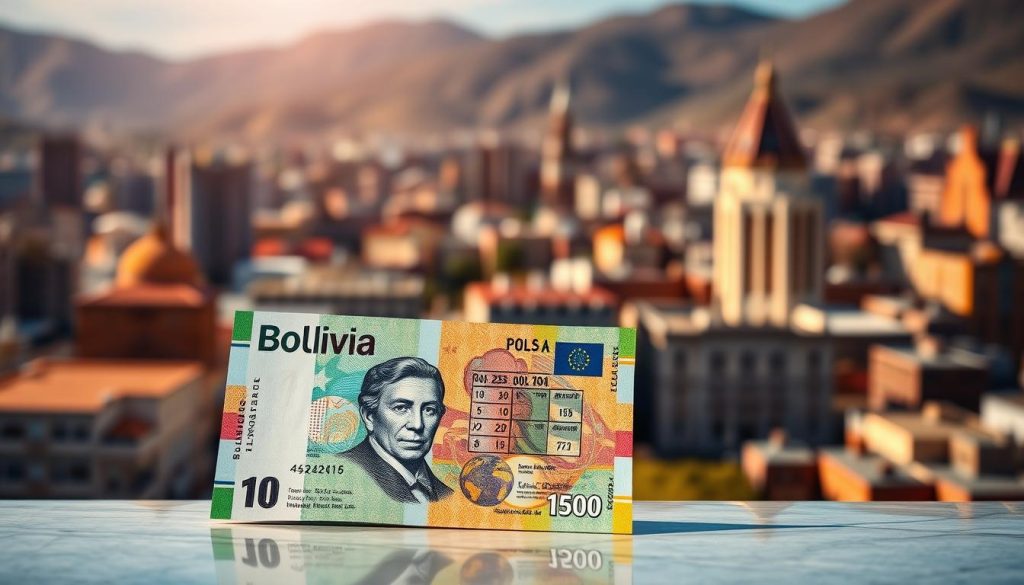
What is the Boliviano (BOB)?
The Boliviano is the official currency, subdivided into 100 centavos. It’s widely used across the country, especially in urban areas. In smaller towns and rural regions, cash in BOB is often the only accepted form of payment.
Understanding the Boliviano’s role in the economy helps you plan better. For example, major banks offer competitive exchange rates, which can save you money compared to local vendors.
How to Read the Mid-Market Rate
The mid-market rate is the real exchange rate between currencies, free from markups. Checking this rate before exchanging money ensures you get a fair deal. Websites and apps from reputable banks provide live updates.
For instance, if you’re exchanging USD to BOB, knowing the mid-market rate helps you compare offers. This way, you can avoid overpaying at airports or hotels, where rates are often less favorable.
Planning ahead also includes understanding visa requirements. Some applications may ask for proof of sufficient funds, so having a clear financial plan is essential.
Currency Exchange Options: Pre-Travel vs. On-Arrival
Planning your currency exchange strategy can save you time and money during your trip. Whether you exchange before departure or upon arrival, understanding your options ensures you get the best value for your money.
Exchanging Currency Before You Depart
Exchanging some of your money before you leave can be a smart move. Airport and hotel exchange offices often charge higher fees and offer less competitive rates. By converting your currency at a local office or bank, you can secure better rates and avoid last-minute stress.
Another benefit of pre-travel exchange is convenience. Having local cash on hand ensures you’re ready for immediate expenses like transportation or meals. This is especially useful if your trip starts in a remote area where ATMs might be scarce.
Finding the Best Rates in the City
Once you arrive, you’ll find plenty of options for exchanging money. Local offices in city centers often offer more competitive rates than those at airports or hotels. It’s worth comparing rates at a few places to ensure you’re getting a fair deal.
Using ATMs is another popular option. They typically provide rates close to the mid-market rate, but be mindful of withdrawal fees. Checking with your bank beforehand can help you avoid unexpected charges.
Here are some tips for choosing the most cost-effective method:
- Compare rates at multiple offices or ATMs.
- Ask about fees upfront to avoid surprises.
- Choose a reliable place with good reviews or recommendations.
By planning ahead and comparing your options, you can make the most of your trip budget and enjoy a smoother experience.
Using International Debit/Credit Cards and ATMs
Using international cards and ATMs efficiently can make your trip smoother. Whether you’re dining at a hotel or exploring a bustling area, having the right payment method ensures convenience. Cards like Wise offer low fees and near mid-market exchange rates, making them a smart choice for travelers.
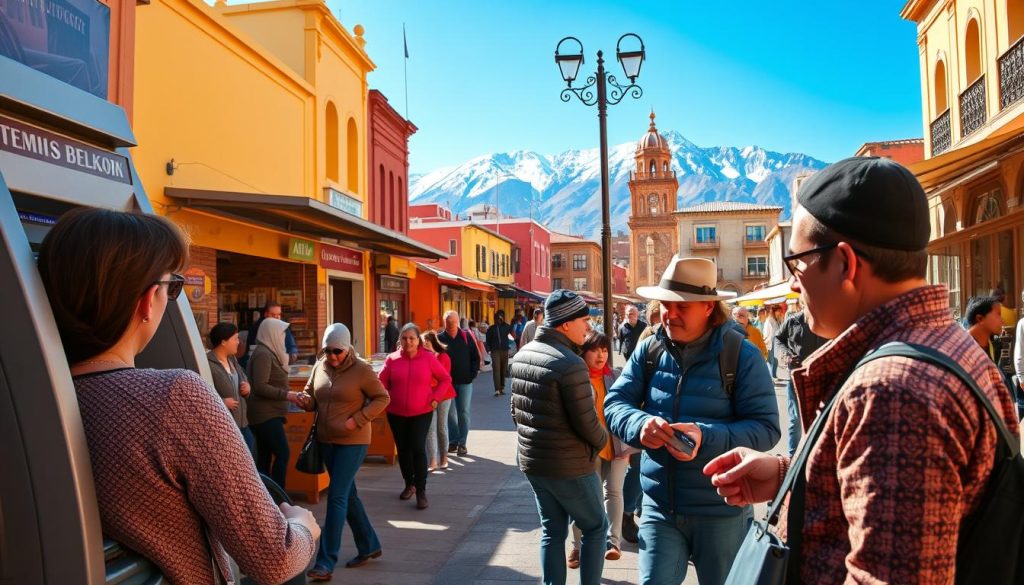
Tips for Using Travel Cards in Bolivia
Travel cards like Wise or YouTrip are designed for overseas spending. They allow you to hold multiple currencies and convert them at competitive rates. This is especially useful in tourist-heavy areas where card payments are increasingly common.
Before your trip, verify that your card works in your chosen destination. Some ATMs may have withdrawal limits, so plan accordingly. Using a travel card also reduces the need to carry large amounts of cash, enhancing security.
Avoiding Foreign Transaction Fees
Foreign transaction fees can add up quickly. Many traditional banks charge around 3% for overseas spending. To avoid this, opt for a travel card that doesn’t impose these fees. Cards like Wise offer fee-free ATM withdrawals up to a certain limit.
When using ATMs, withdraw smaller amounts frequently to minimize risks. Always check for additional fees from the ATM provider. Informing your bank about your travel plans can also prevent unexpected card blocks.
By following these tips, you can manage your finances effectively and enjoy a hassle-free trip.
Tips for Avoiding Currency Conversion Pitfalls
Navigating currency conversion can save you money if done right. One common issue travelers face is dynamic currency conversion (DCC). This occurs when a merchant converts the price into your home currency instead of the local one. While it might seem convenient, it often comes with hidden fees and unfavorable exchange rates.
How to Recognize Dynamic Currency Conversion
DCC is often offered at restaurants, airport vendors, and other tourist-heavy spots. When paying with a card, the machine may ask if you’d like to pay in your home currency. This is a red flag. Always choose to pay in the local currency (BOB) to avoid extra costs.
For example, at a restaurant, the bill might show both BOB and USD amounts. Opting for USD could mean paying a higher rate. Similarly, at the airport, vendors may push for DCC, especially if they notice you’re a tourist.
Practical Tips to Avoid Extra Fees
Here’s how you can steer clear of DCC pitfalls:
- Insist on BOB: Always request transactions in the local currency.
- Check your receipt: Ensure the amount is in BOB, not your home currency.
- Use a travel card: Cards like Wise avoid DCC and offer better rates.
A small tip can also help. If a vendor insists on DCC, politely offer a tip to switch to BOB. This works especially well in tourist areas where service staff are open to negotiation.
By staying vigilant and choosing local currency, you can save money and enjoy a smoother travel experience.
Real Traveler Experiences and Reviews
Exploring the experiences of past visitors can provide valuable insights for your journey. Hearing firsthand accounts helps you understand what to expect and how to prepare for your adventure. Whether it’s about the service quality or the challenges faced, these stories can shape your decisions.

What Past Visitors Have Said
Many travelers highlight the importance of a well-organized trip. One person shared how their guide’s attention to detail made their visit to South America unforgettable. They praised the timely service, which ensured they didn’t miss any key attractions.
Another visitor mentioned how an extra hour spent exploring a local market added depth to their experience. These small touches often make a big difference. However, some travelers also noted challenges, like language barriers or unexpected delays, which are common in new destinations.
How to Choose a Trustworthy Guide
Selecting the right guide can make or break your trip. Personal recommendations from other persons are invaluable. A guide with a proven track record in South America can offer insights that enhance your journey.
Look for guides who prioritize timely service and have a reputation for reliability. Reviews often highlight how even an extra hour of local knowledge can transform your experience. A trustworthy guide ensures you get the most out of your time in this part of the world.
Here are some tips for finding the right guide:
- Check reviews: Look for consistent praise about their service and professionalism.
- Ask for recommendations: Personal referrals from other travelers can lead you to the best guides.
- Verify credentials: Ensure they are licensed and have experience in the region.
By learning from others and choosing wisely, you can enjoy a seamless and enriching travel experience in this vibrant part of the world.
Safety, Legal, and Financial Considerations
Staying informed about local laws and financial safety is key to a hassle-free trip. Understanding the legal requirements and protecting your money ensures you can focus on enjoying your journey without unnecessary stress.
Local Laws and Legal Requirements for Foreign Travelers
Every country has its own set of rules, and it’s essential to familiarize yourself with them before you go. For example, some places require specific visas or identification documents. Failing to comply can lead to penalties or even denial of entry.
Always carry your passport and any necessary permits. Double-check the validity of your documents, as some countries require passports to be valid for at least six months beyond your travel dates.
Protecting Your Money and Personal Information
Keeping your funds and personal data secure is crucial. Use trusted financial services and avoid sharing sensitive information over unsecured internet connections. Public Wi-Fi networks, for instance, can be risky for online transactions.
Consider using a travel card or digital wallet for added security. These options often come with features like fraud protection and real-time alerts, making them a safer thing to rely on during your trip.
Be cautious of common scams, especially in areas where prices might not be transparent. Always verify the cost of services or products before committing. This simple step can save you from overpaying or falling victim to fraud.
Here are some practical tips to stay safe:
- Use secure internet connections: Avoid accessing sensitive accounts on public Wi-Fi.
- Verify prices: Ask for clear pricing to avoid hidden fees.
- Choose widely accepted services: Stick to reputable providers for financial transactions.
By adhering to local laws and protecting your finances, you’ll not only stay safe but also gain the respect of the locals. This makes your experience in any country more enjoyable and stress-free.
Budgeting and Managing Expenses on Your Trip
Managing your budget effectively can make or break your travel experience. Planning ahead ensures you have enough funds for accommodation, meals, and transportation, especially in areas where ATMs may be scarce. A balanced approach between cash and card usage is key to covering all your expenses smoothly.

Planning for Hotels, Meals, and Transportation
Start by researching the cost of accommodation in your destination. Budget hotels or hostels can save you money, while mid-range options offer more comfort. Allocate a daily budget for meals, keeping in mind that local eateries are often more affordable than tourist spots.
Transportation costs can vary widely. Public transport is usually the cheapest option, but taxis or rideshares may be more convenient at times. Planning your routes in advance can save both time and money.
Here are some practical tips for managing your expenses:
- Compare prices: Look for deals on accommodation and transportation to stretch your budget.
- Set aside emergency funds: Unexpected expenses can arise, so having extra cash is always a good idea.
- Balance cash and cards: Use cards for larger purchases and cash for smaller transactions.
By planning your spending in advance, you’ll have more time to enjoy your trip without worrying about finances. A well-thought-out budget ensures you’re prepared for both planned and unplanned expenses.
Deep Dive: Bolivia: Ultimate Travelers Guide to Currencies & Payments
Balancing traditional and modern payment methods ensures smoother transactions. Whether you’re buying a small item or paying for a larger expense, understanding the pros and cons of each method can save you time and money.
Comparing Cash Versus Card Payments
Cash is widely accepted, especially for smaller purchases like snacks or souvenirs. It’s ideal for places where card machines aren’t available. However, carrying large amounts of cash can be risky.
Cards, on the other hand, offer convenience and security. They’re perfect for hotels, restaurants, and larger transactions. Using a card also helps you track your spending more easily.
Here’s a quick comparison:
- Cash: Accepted everywhere, but risky to carry in large denominations.
- Cards: Secure and convenient, but not always accepted in rural areas.
How to Leverage Modern Payment Technologies
Modern payment technologies like digital wallets and travel cards are changing the game. They offer competitive exchange rates and low fees, making them a smart choice for travelers.
For example, a travel card allows you to hold multiple currencies and convert them at mid-market rates. This is especially useful when purchasing an item in a foreign currency.
Here’s how to make the most of these tools:
- Use digital wallets: They’re fast, secure, and widely accepted in urban areas.
- Check exchange rates: Ensure you’re getting the best denomination for your money.
- Stay updated: New technologies are constantly emerging, so keep an eye out for better options.
By understanding the strengths of each payment method, you can make informed decisions and enjoy a hassle-free trip.
Conclusion
Planning your financial setup before your trip is a smart idea for smooth travels. Understanding exchange rates, choosing the right payment methods, and carrying local cash can save you time and money. By preparing ahead, you’ll avoid unnecessary stress and focus on enjoying your journey.
Remember to compare rates, use travel cards for low fees, and always opt for local currency in transactions. These small steps ensure you’re ready for any situation, whether in cities or remote areas. Being informed about your options is the key to a hassle-free experience.
Use this guide as your blueprint for financial success. With the right preparation, you’ll feel confident and ready to make the most of your adventure. Start planning today and travel with ease!
The above is subject to change.
Check back often to TRAVEL.COM for the latest travel tips and deals.
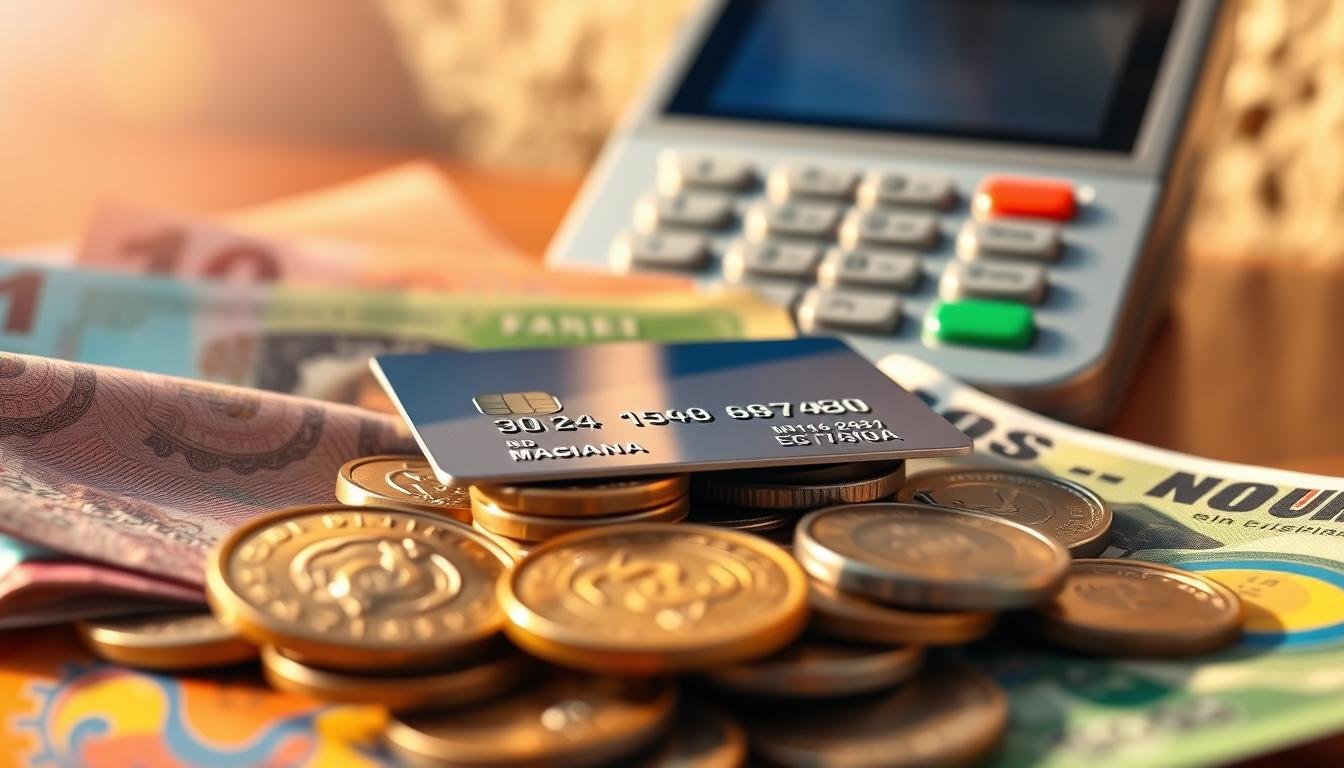

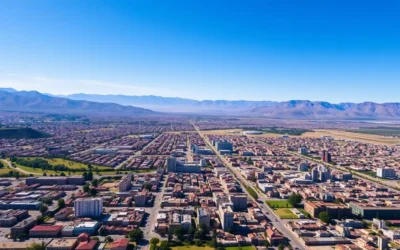
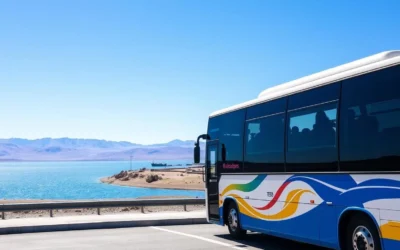
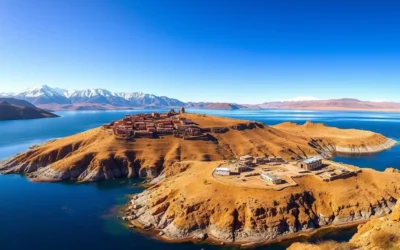

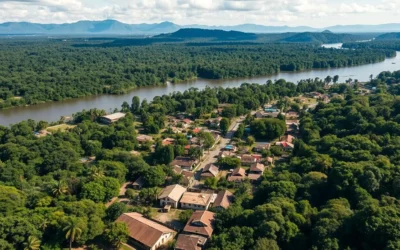
0 Comments